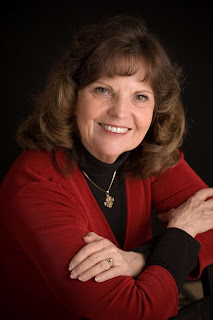Jane Marlow’s debut novel is a beautifully written historical saga of two families—one born of noble heritage and the other bound as serfs to the noble’s household. Set during the mid-1800s in the vast grainfields of Russia, Who Is to Blame? follows the lives of two star-crossed serfs, Elizaveta and Feodor, torn apart by their own families and the Church while simultaneously trapped in the inhumane life of poverty to which they were born.
At the other end of the spectrum, Count Maximov and his family struggle to maintain harmony amidst a tapestry of deception and debauchery woven by the Count’s son. The plot twists further when the Tsar emancipates twenty million serfs from bondage as the rural gentry’s life of privilege and carelessness has taken its final bow, while much of Russia’s nobility faces possible financial ruin.
Aficionados of historical fiction will be captivated by the lyrical flow of Marlow’s intertwining stories of love, loss, courage, and pain against her backdrop of social upheaval. The novel’s riddles flow subtly throughout, spurring readers to ponder where the blame actually lies. In the end, we must tap into our own hearts to navigate the depths and quandaries of the author’s perplexing question.
THE SILVER SPOON & THE WOODEN BOWL
The excellent suggestion for this post’s topic came from Cheryl at The Book Connection. Downton Abbey made a colossal splash when it juxtaposed the lifestyle and adversities of the upper and lower British classes. The same contrast is portrayed in my novel, Who Is to Blame? A Russian Riddle, except my setting was rural 19th century Russia. It was a gratifying challenge for me to find techniques that would highlight the similarities and the disparities of the estate-owning Russian gentry and the serfs (peasants) that tilled their fields, cleaned their manor houses, and distilled their vodka.
First, I chose dignified names for the nobility that incorporated the 1) given name, 2) patronymic name, and 3) family name. An example is Anton Stepanovich Maximov. For most of the peasants, I selected simple diminutive names such as Pasha and Katya.
Ditto for their basic word usage and conversations. The peasants had no formal education whatsoever and, therefore, spoke with short words and poor grammar. Their discussion topics reached no further than the surrounding grainfields. On the other hand, the nobility’s multisyllabic words sometimes bordered on verbose, particularly when fulminating against Tsar Alexander’s Great Reforms.
Readers of Who Is to Blame? might notice the back-to-back positioning of scenes that underscores the differences in moral code and social conduct of the well-healed versus the indigent. For instance, a scene of serf family violence draws upon the peasant credo that wife-beating is a way of life. The next scene opens with persnickety etiquette lessons for the gentry children.
In another literary device, serfs are temporarily placed in the gentry’s environment. For instance, a teenage serf is befuddled when she sees the Count blow his nose into a square piece of cloth, which he then returned to his pocket. Why not simply blow the snot onto the ground? This writing technique also served a second purpose – to add a touch of humor to a heavy-weight story.
Woven between the disparities are the similarities that span the spectrum of all social classes. Nurturing children. The ravages of pandemic disease. Shattered dreams. The bond between lovers. The futility of trying to outwit Mother Nature. The yearning for a brighter tomorrow.
My sincere hope is that Who Is to Blame? is an eye-opener regarding the 1861 emancipation of the serfs as well as the final bow of the rural gentry’s life of privilege. Let me know if I succeeded.
Warmest regards and well wishes for a future full of thought-provoking books!
Jane Marlow
Who Is to Blame? A Russian Riddle
301 pages
Publisher: River Grove Books, October 18, 2016
Website: JaneMarlowBooks.com
Purchase:
Available in soft cover and ebook.
Audible version soon to be released. Check JaneMarlowBooks.com for updates.
Local bookstores – if not in stock, ask them to order it
Amazon
https://www.amazon.com/Who-Blame-Russian-Jane-Marlow/dp/1632991047/
Barnes & Noble
http://www.barnesandnoble.com/w/who-is-to-blame-jane-marlow/1124796416
Google Play Books
https://play.google.com/store/search?q=Who%20is%20to%20blame%20jane%20marlow
iBooks
https://itunes.apple.com/us/book/who-is-to-blame/id1165205454
About the Author:
When not working at her bill-paying job, Jane Marlow penned the first version of Who Is to Blame?. Over the next 18 years, her stack of rejection letters from publishers grew taller than the empty wine bottle sitting next to it. After a jillion revisions, voila! A publishable manuscript.
Jane Marlow’s writing reflects change over time. Changes in the world around us. Changes within ourselves. Her characters, like each of us, have the choice of rolling with life’s punches, or curling into a ball, or gulping in a deep breath and building a stronger, more resilient person.
In addition to working on a sequel, Jane has put together a free e-newsletter for anyone who wants to delve deeper into the culture and history of Russia (a country truly like no other). Chockful of Russian riddles, proverbs, artwork, and tidbits of 19th century life, the 6-times-a-year newsletter is designed for inquisitive people who prefer to chuckle while they learn. The Nov-Dec 2016 edition can be viewed at here: (http://eepurl.com/chdh41) Sign up at JaneMarlowBooks.com (http://JaneMarlowBooks.com/contact) No spam or sales gimmicks. Never. Ever.
Jane uses Skype or speaker phones to meet long-distance with book clubs and reading groups. Want more info? Email (JaneMarlowBooks@gmail.com )

















.jpg)




























